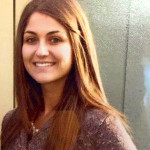Dysautonomia International is pleased to announce our first two summer research internships for college and graduate level students interested in studying POTS. A talented pool of individuals from across the US and Canada applied for the 2016 Dysautonomia International Research Internship. After a careful deliberation, two interns were selected – Erin and Julia. Erin and Julia will get to work with one of the top experts in the field this spring and summer, Dr. Hasan Abdallah, Director of The Children’s Heart Institute. They’ll be working on two very exciting POTS research projects – a long term follow-up study on pediatric POTS patients and study on peripheral vascular resistance in pediatric POTS patients.
In addition to conducting POTS research that is needed right now, we hope this annual research internship program will have other benefits too. By supporting young scientists and nurturing their interest in POTS research, over the long term we hope to attract more medical professionals and scientists to focus on POTS clinical care and research throughout their careers. Please consider making a donation to Dysautonomia International so that we can fund additional research interns in the future.
Q: Tell us a little bit about yourself
 Erin: I am majoring in neuroscience and biology at Carthage College in Kenosha, Wisconsin. I am 19 years old and lived in Connecticut until I was five. I then grew up in Pewaukee, Wisconsin until I graduated from Pewaukee High School. I have a health and nutrition business and I enjoy teaching classes and sharing better health with others.
Erin: I am majoring in neuroscience and biology at Carthage College in Kenosha, Wisconsin. I am 19 years old and lived in Connecticut until I was five. I then grew up in Pewaukee, Wisconsin until I graduated from Pewaukee High School. I have a health and nutrition business and I enjoy teaching classes and sharing better health with others.
 Julia: I’m from Scotch Plains, New Jersey. I’m 21 years old and graduating from the University of Miami this May. I majored in Marine Science and Biology and minored in Chemistry and Math.
Julia: I’m from Scotch Plains, New Jersey. I’m 21 years old and graduating from the University of Miami this May. I majored in Marine Science and Biology and minored in Chemistry and Math.
Q: What motivated you to get involved with POTS research?
Erin: For the past 4.5 years, I have had first-hand experience with POTS. During this time I have attended many doctors appointments and have continuously sought out more information to improve my health. I believe that knowledge is power, and research is one form of knowledge that can have a truly powerful impact. My experiences have led me to develop my own theories as to causes or of underlying mechanisms of POTS which I plan to further research in my future. I am personally invested in and motivated to do research in relation to POTS to better understand myself, but more so to help all of us dealing with this condition or related conditions.
Julia: Because of developing POTS last Spring, I decided not to apply to graduate school until after I graduate so that I have a little more time to adjust to my new circumstances and I’m not too overwhelmed with filling out applications in addition to all of my senior year classes. I’ve always been very interested in research and experimentation and I’m planning to continue doing those things in graduate school and beyond. I’v been involved in research since my freshman year of college and I’m always curious to learn more about all aspects of biology, including mine. That’s why POTS research seemed like a really good pursuit for my gap year.
Q: How do you balance your school and work activities with your health?
Erin: Over the past few years, I have learned the importance of health and that it really must come first to even allow anything else to be possible. With this being said, it is absolutely necessary to hold myself accountable for what I am capable of doing in terms of work and school and to continuously be pushing my boundaries and capabilities, within good reason of course. Dysautonomia has taught me how to be a better worker and student. Making working out a priority, I better myself and those I invite to join working out with me. Although sometimes exhausting, this gives me the blood flow and energy necessary to think and do well on my school work. By putting my limited energy into the things I care about and am passionate about I am able to find balance, but preparation and focusing on these aspects of life is necessary for me to achieve this balance. Additionally, I have found asking for accommodations and help when I need it is essential to success in all of these areas.
Julia: I can’t do all of the things I used to do at school so it’s been important for me to learn to conserve my energy and push myself at the same time (if that makes any sense). I’ve been able to do pretty much everything I want to do, just in moderation. With the exception of some bad days here and there, school hasn’t been as hard as I thought it would be. There isn’t much work that you can’t get done sitting down or from the comfort of your own bed or couch.
Q: What are your plans after college?
Erin: After undergraduate schooling, I plan to go to an MD/Ph.D. program and become a medical scientist. I believe that better answers can be found more efficiently when doctors, scientists, and patients work together in a collaborative nature. Having training as both a clinical practitioner and scientist will provide me the foundation to help enhance this collaborative environment with those I work with specifically relating to causes and better treatment options for dysautonomia and other neurological conditions.
Julia: I’m planning on working on some of Dr. Abdallah’s research while also applying to grad programs; I’m applying to Ph.D. programs and hope to continue studying something in the field of microbiology, molecular biology, or evolution. I also really want to spend the next year getting back into good shape and exercising regularly again.
Q: What do you hope to get out of the Dysautonomia International Research Internship?
Erin: I am looking forward to expanding my knowledge in dysautonomia research and learning as much as I can from Dr. Abdallah. I envision learning more research techniques, enhancing my technical writing skills and hope to gain a better understanding of the autonomic system. I hope these skills will help me discover patterns and connections that can provide further understanding into this condition and inspire further questions and theories.
Julia: I’m hoping this internship will give me some good experience working on a project that directly involves people. In the past, I’ve worked with algae, sea urchins, anemones, ctenophores, and sea slugs, so this internship will definitely give me a different perspective on how to conduct research. I also really want to understand more about POTS as it is something I live with and hope that the work we do will help others learn more about their own situations. There isn’t as much data out there on POTS and there aren’t as many research studies being done yet compared to other conditions so I’m glad I can help keep the momentum going on projects like this!
Q: If you could give one bit of advice to a newly diagnosed patient, what would you want them to know?
Erin: Life can get better if you choose life. You have to choose your best life every single day even though sometimes you may not feel the best. It is so easy to become deconditioned, which can have harsh implications, so choose better health and workout. With this in mind, every aspect of health needs to be acknowledged, so also always respect and listen to your body. There are many people working to help you, and even if they may not be directly in your life right now, they exist, but you may have to seek them out. Some things you cannot control right now, but maybe one day you will be able to or you will be able to manage it better. To become better, you must continuously choose life. Just keep looking and choosing to better yourself until you find these things. Yes, sometimes it may seem impossible but you must try. I’m not saying push yourself past what you are capable of so that you fall backwards, but I am saying you must escape your comfort zone and continuously strive to better yourself and your life. Every day holds something good, so focus on the good more than not. Enjoy the process of improvement and discovery and know that you can make a difference for the next person that comes along and needs some understanding in this regard. But remember you and your health must come first to allow for a great life to follow.
Julia: Make sure you find a good doctor that you personally get along with and trust. It is very easy for doctors with little experience in the POTS world to be dismissive or discouraging or tell you a certain treatment will make you feel better and you just end up being disappointed when it doesn’t happen. It’s totally okay to get a second or third opinion, especially if it gives you peace of mind. It can take a long time and many appointments to find a doctor that “gets it” but it will happen eventually.
Follow Dysautonomia International on Facebook and sign up for our email list to find out about next year’s Research Internship application deadline, and for updates on the research Erin and Julia are conducting with Dr. Abdallah.